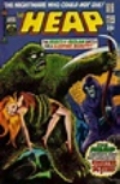I don't know where this one came from. I don't have any relatives affected by The Dirty Thirties, the terrible dustbowl days and the migration to California. Other than how everyone, anyone, was affected. And the subject of this hybrid prose (prose poem?), John Stark Settle, is no one I knew or knew of. When I moved out to Los Angeles some years back, I took some back roads, desert roads, and old Route 66 some of the way, and imagined the trials of people I'd seen in photos taken by Dorothea Lange and Walker Evans. The past has always been with me, and previous lives are not something I'd argue against. In Chino, at the old air museum, I felt their presence, those people thrust into WWII. Strongly. A book could come out of that place, the people talking to me over the years in that otherwise empty museum, with "Don't Sit Under The Apple Tree" piped in, old fighter planes sitting on polished floors. The cockpits seemed so small, but they held real people. Vital people who still shared their energy.
Anyway, out in LA with my Kansas plates, I happened to meet a couple of dustbowlers, oldsters who had motored west, gotten their kicks on Route 66. One had started a motel after surviving the migration. I wish I had talked to him more, heard some more, but I was anxious to start my own California Dreaming. And I'll say this; the place was good to me.
So here's a 500-word piece that jumped onto the page, started out as flash fiction, but turned a corner somewhere and got all hybrid prose/poetry on me. A saga in sixty lines. A word here: John Settle's worldview is not mine, though I envy him his time with the early Beat generation. This piece got picked up by Shotgun Honey, I'm proud to say, as I regard them as the Paris Review of noirish badassery. Give 'em a read when in that mood. And, of course, a plug for Ruined Days, another journey from Kansas in novel form.
Settle
Eighty-seven. Full life they'll say. Full, anyway, of something.
Settle came to California in 1935.
propelled by dust storms like great roiling theater curtains, bulldozed shotgun shack, shared cotton crop zeroed out
Now California is trying to be Kansas eighty years later. To dust.
Thought it was the green and promised land. Seen so much.
Shuffle-stepped, soft-shoed humming, singing, "Getcher kicks. On Route sixty-six."
He had.
Kicks to the head as a seven-year old.
Khaki-clad men, crop cops for the landowners, his mother going with a pair of them at night.
goddamn why would you think of that? Migrant whore, they said.
Spat it, didn't just say it.
Fear. Hate. Pain. Rage. "Don't forget Wy-nona, San Bernadeeno, kicks, ever plan to motor west..."
Hummed it, little jump step, his knee hurt.
"Hell to get old," he said to the dog that watched him.
"But you know that."
The dog's tail moved once, he thumped over on his side, exhaled, closed his cloudy eyes and slept.
Early on, the scene, man. Seemed right, seemed cool. Got high. Read a lot. Jack, Howl, Bill, Road, Steinbeck stuck with him but a 1930's copy of Napoleon Hill in tatters thrust him forward, shot him at the moon. He shed the jungled friends.
Jobs. Warehouses. Bridges. Boomtime. Scraping. Saving.
Settle Inn Motels, all over the west, the dream. Three of them the reality.
Torrance,
Culver City,
San Pedro.
Prosperous, then not.
Fling with Vegas in the fifties. Part owner Cactus Flower Casino. Kicked out by eye-ties, the mean-eyed jew, muttering through cigars.
had the knack for a few years, lost it.
John Stark Settle. Back to the wall.
Splash.
Ol' Kentuck into the glass, two fingers. Cheap. Burning.
Drink from a glass, not the bottle and you're not a shitbum.
A clean glass.
Weighed the cold Smith and Wesson 357, released the cylinder to gravity, checked the loads.
.38 pluses. Hollowpoints.
Solid gun. A Burroughs piece.
Snap the cylinder shut, click like an old Cadillac door. Pink convertible.
The dog's front feet moved. Chasing something in a dream, Settle thought. I was always doing that.
Damn near caught it, too.
One stored number on the cellphone. "Come pick up the dog tonight," to Marie's voicemail. She had dogs, a little land. "I'm going back to Kansas."
Closed the door softly behind him.
Walked to the empty ruined pool, climbed down the chromed ladder. He'd sold this motel thirty years before. To be demolished next month. The sign said a health clinic. Coming soon.
He remembered the chromed ladder and how much it had cost. Blisters of rust scraped his hands as he descended.
Expensive chromed steel. Custom made.
Made irrelevant.
The pocked and gray and spray-graffitied pool wall obscured all but some of the faded steel turquoise sign from where he stood in the leaves and trash.
Amoeba-shaped they'd called it. the sign. when bright.
Settle Inn. "For the Best Rest in the West," said a smaller sign.
Beneath it.












